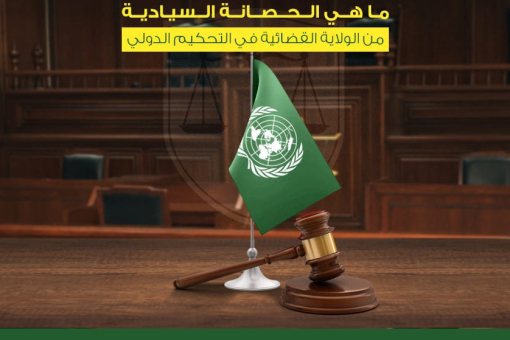What is sovereign immunity from jurisdiction in international arbitration?
International arbitration is conducted based on many procedural principles agreed upon through various international agreements. Sovereign immunity related to certain individuals or sovereign entities has its own laws established through international agreements that encompass all countries within the scope of these global commercial agreements and enforce them directly. In this article, we will answer the question of what is sovereign immunity from jurisdiction in international arbitration.
Sovereign Immunity from Jurisdiction in International Arbitration
Sovereign immunity is an important legal principle that protects many countries from any form of criminal prosecutions or international prosecutions. This immunity indicates that the country in question does not commit any errors that would ultimately lead to such problems, making it an important principle within international law. Under this principle, a country gains independent sovereignty not subject to the jurisdiction of foreign courts.
Sovereign immunity cannot be waived unconditionally; a country seeking international sovereignty must agree to fully submit to the legal sovereignty of another state. A country enjoying sovereign immunity is not entirely subject to the power and authority of foreign international courts, except in one case, which is when the country voluntarily waives that immunity.
Additionally, sovereign immunity helps ensure that a foreign country cannot impose any commercial or legal judgments without the consent of the sovereign-immune country.
There are certain things that any country cannot object to using sovereign immunity. These include matters related to international commercial judgments, which are among the most important laws agreed upon in the United Nations Convention on the Sovereign Immunities of States and Their Properties, which we will discuss in detail later.
United Nations Convention on the Sovereign Immunities of States and Their Properties
There are many articles agreed upon in this important convention signed on December 2, 2004, ratified by the United Nations General Assembly on that date. This convention's main provision states that preserving international sovereign immunities and properties from jurisdiction is formally and substantively acceptable.
In this case, complete sovereignty of these countries is maintained while taking into account the proportionality of this principle with its compatibility with the principles of international law outlined in the United Nations Charter. This compatibility enhances and supports legal sovereignty and trust, especially in transactions between ordinary individuals or legal entities and countries, with attention given to developing this law to suit all types of practices related to these areas.
International Organizations' Immunities
Certain international organizations generally enjoy sovereign immunities that significantly aid in their operations. These immunities prevent the foreign state hosting their headquarters from interfering in any way with the procedures conducted by the immune entity. The types of immunities related to international organizations include:
Immunity and advantages in favor of the organization.
Immunity for the member states of the organization.
Immunity for the organization's employees.

Comments : 0